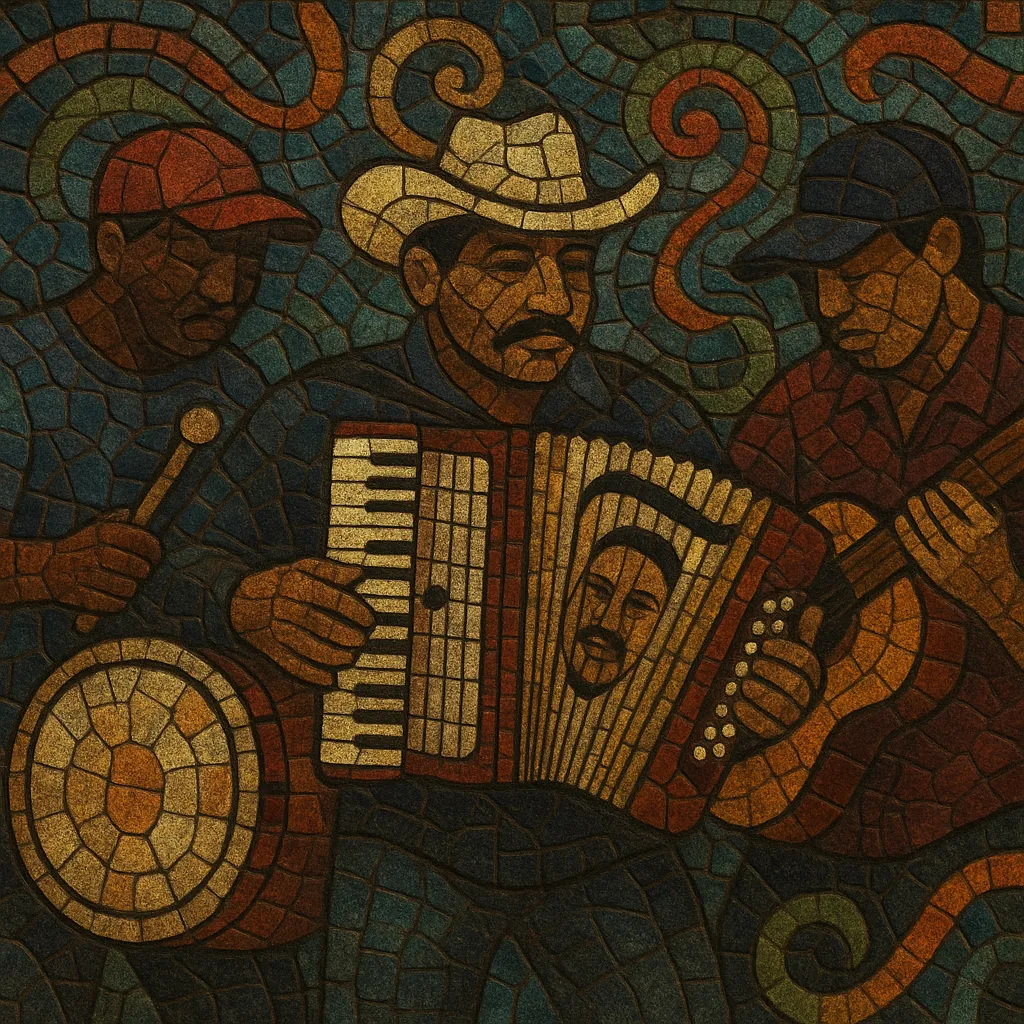Cumbia rebajada is a slowed-down, pitch-dropped way of playing cumbia that emerged in Monterrey, Mexico. DJs reduce the playback speed of Colombian and Mexican cumbia records, yielding a deeper, heavier groove with drawling vocals and a syrupy, hypnotic feel.
The style emphasizes bass weight, echo-drenched percussion, and elongated accordion and guitar lines. It is closely tied to the cholombiano (kolombiano) street culture and sonidero sound-system scenes, where the slowed tempo supports a distinctive, gliding dance style and community shout‑outs.
Cumbia rebajada took shape in the 1990s in Monterrey, Nuevo León, Mexico. Sonidero DJs reportedly discovered the sound after a turntable or belt issue made a 45 RPM cumbia record play closer to 33 RPM. The result—roughly a 27% slowdown and a drop of about five to six semitones—produced a heavy, head‑nodding swing that dancers immediately embraced. The term “rebajada” (lowered) refers to the intentionally reduced playback speed and pitch.
As the aesthetic spread across neighborhood dances and mobile sound systems, it became inseparable from the cholombiano subculture in Monterrey: a community deeply devoted to Colombian and Mexican cumbia, distinctive fashion, and social dance. Sonidero practices such as extended mixes, echo-laden mic shout‑outs, and bass-forward setups helped codify the rebajada experience.
DJs favored accordion-driven Colombian and Mexican cumbia (e.g., Aniceto Molina, Andrés Landero, Celso Piña) and Peruvian/Amazonian cumbia and chicha. Cassette trades, pirate CDs, and local radio strengthened the scene, while the slowed format gave familiar tunes a melancholic, trance-like character that felt new and local.
From the 2000s onward, Monterrey artists and DJs brought attention to the style beyond the region. In the 2010s and 2020s, internet edits, TikTok virality, and contemporary DJ culture popularized “rebajado” approaches across Latin genres (e.g., reggaeton and dembow slowed mixes), while also informing parts of global bass and digital cumbia. Despite these crossovers, cumbia rebajada remains rooted in sonidero craft, neighborhood dances, and the cholombiano identity that birthed it.


